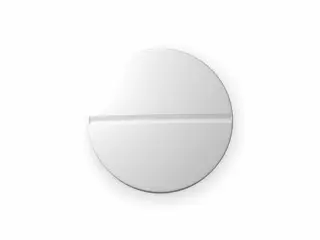Buy Amiodarone Online in Ireland
| Package | Dosage | Price | Price per Dose | |
|---|---|---|---|---|
| Dosage: 200mg | ||||
| 120 pill | 200mg | €262.04 | €2.19 | |
| 90 pill | 200mg | €206.81 | €2.29 | |
| 60 pill | 200mg | €144.53 | €2.41 | |
| 30 pill | 200mg | €77.55 | €2.57 | |
| 20 pill | 200mg | €55.22 | €2.75 | |

Amiodarone Description
Understanding Amiodarone
Amiodarone is a powerful medication used primarily to treat and prevent serious types of irregular heartbeats, also known as arrhythmias. It belongs to the class of drugs known as antiarrhythmics and is often prescribed for conditions such as ventricular tachycardia and atrial fibrillation. Its effectiveness in restoring normal heart rhythm has made it a vital option in cardiology treatment plans. Because of its potency, Amiodarone is typically reserved for cases where other, less potent medications have failed or are not suitable.
How Amiodarone Works
The medication works by affecting the electrical signals in the heart that regulate heartbeat. It prolongs the refractory period of cardiac tissue, which helps to stabilize abnormal electrical activity. This action reduces the incidence of irregular heartbeats and improves overall cardiac function. Amiodarone’s mechanism is complex, influencing multiple ion channels, including those for potassium, sodium, and calcium, which contributes to its unique efficacy in controlling arrhythmias. However, this multifaceted mechanism also accounts for its widespread side effect profile, requiring careful monitoring during treatment.
Advantages of Amiodarone
One of the notable benefits of Amiodarone is its high efficacy in controlling difficult arrhythmias. It is often the drug of choice when other medications do not achieve the desired results. Its ability to manage both atrial and ventricular arrhythmias makes it versatile in various clinical scenarios. Patients who have experienced recurrent episodes of abnormal heartbeat can experience significant improvement in quality of life with proper use. Additionally, Amiodarone has a relatively long half-life, which means it can maintain therapeutic levels even with less frequent dosing after reaching steady state.
Possible Side Effects and Risks
Despite its effectiveness, Amiodarone comes with a risk of serious side effects. It can cause pulmonary toxicity, leading to lung inflammation or scarring, which can be life-threatening. Liver damage is also possible, necessitating regular liver function tests during therapy. Thyroid problems, including hypothyroidism or hyperthyroidism, are common due to Amiodarone’s high iodine content. Skin reactions, such as photosensitivity or bluish discoloration, may also occur. In some cases, eyesight issues or neurological effects like tremors or peripheral neuropathy are observed. Because of these risks, medical supervision is essential, and patients are typically monitored closely throughout treatment.
Usage and Dosage
Amiodarone is usually administered orally in the form of tablets, but in emergency situations, it can be given intravenously. The dosage depends on the severity of the arrhythmia, the patient’s response, and their overall health condition. Treatment often begins with a loading dose to quickly achieve therapeutic levels, followed by a maintenance dose. Patients should always follow their healthcare provider’s instructions carefully and attend regular check-ups to monitor for side effects and blood levels of the medication.
Conclusion
Overall, Amiodarone is a highly effective medication for managing complex arrhythmias. Its ability to restore and maintain normal heart rhythm makes it a crucial tool in cardiology. However, its use requires diligent medical supervision due to its potential for serious adverse effects. Patients considering Amiodarone should have a thorough discussion with their healthcare provider about the benefits and risks, ensuring that the therapy is tailored to their individual health needs.

